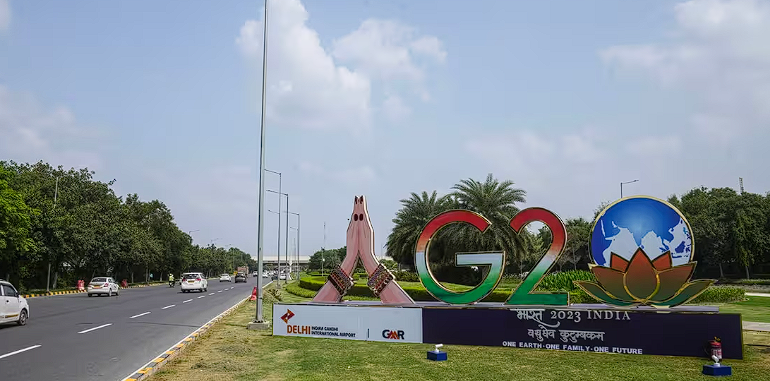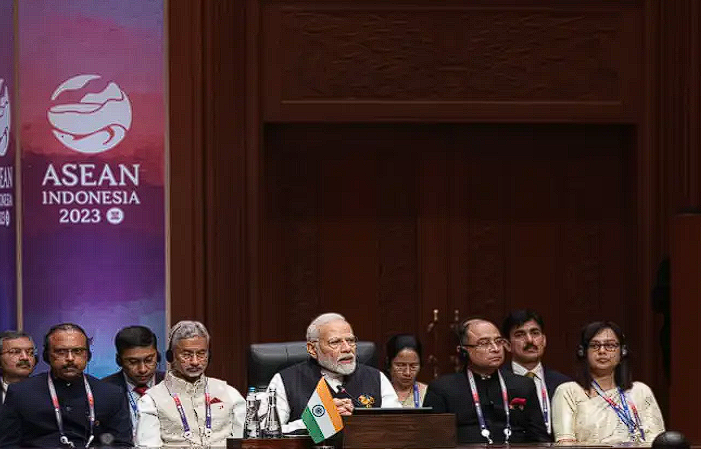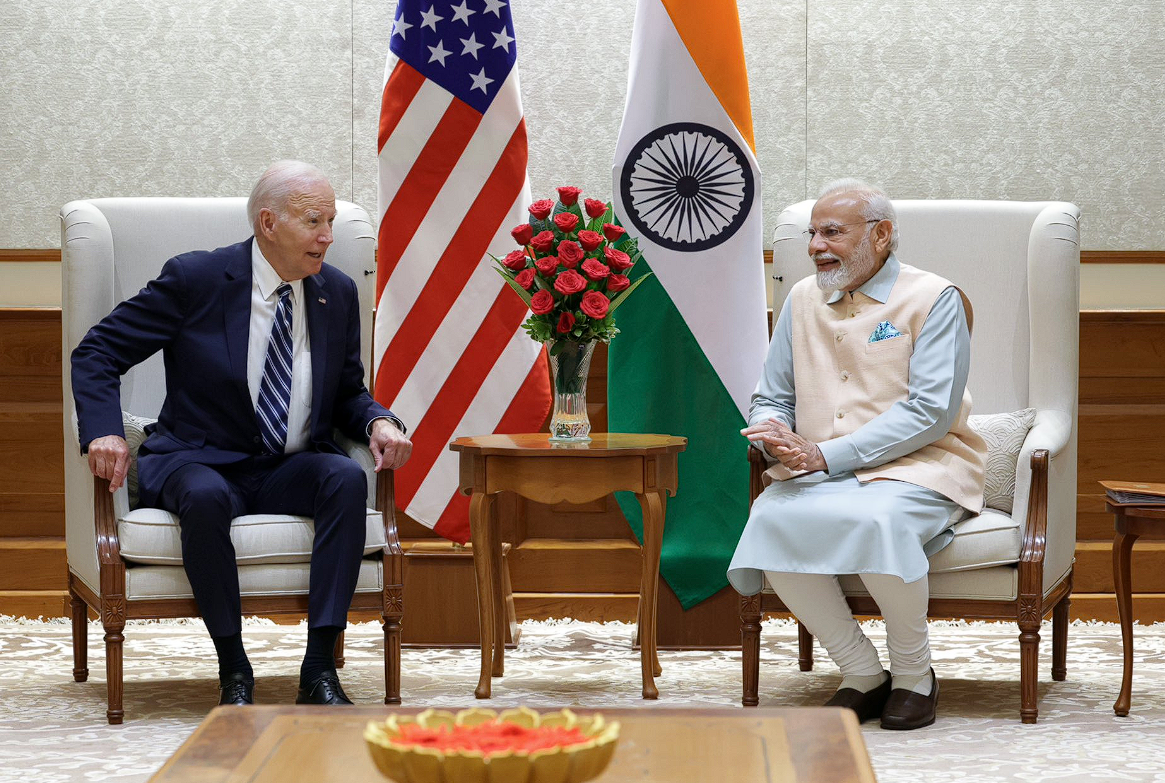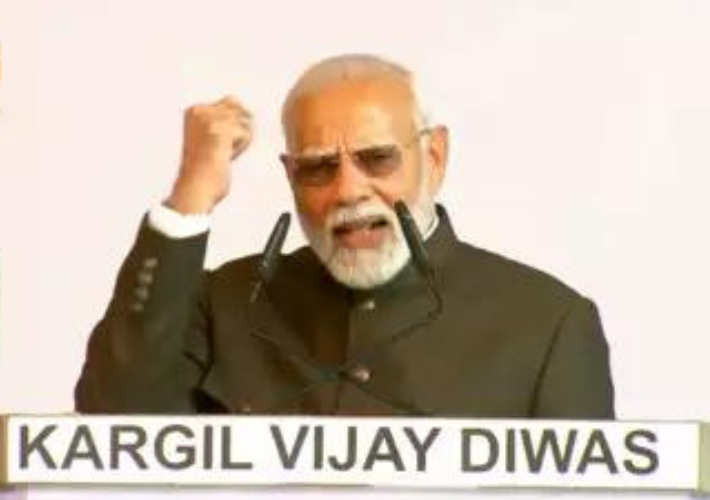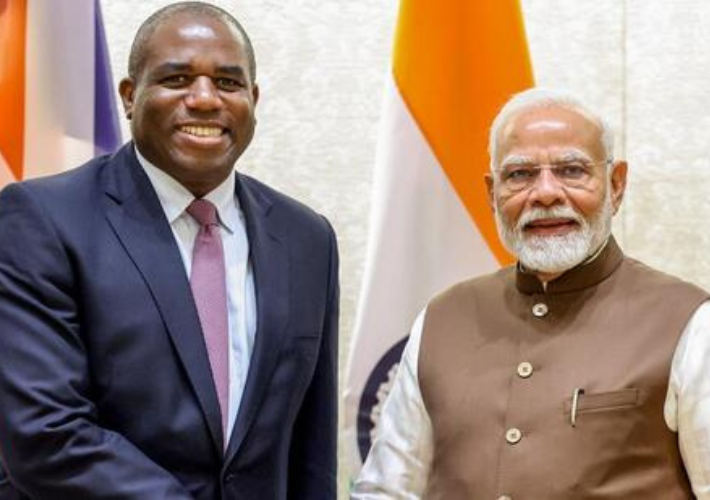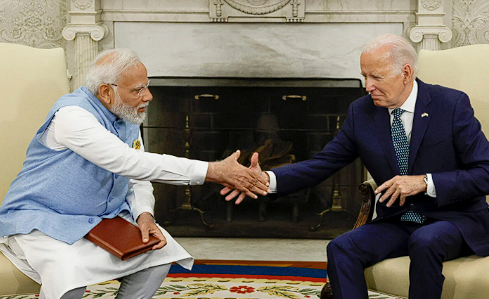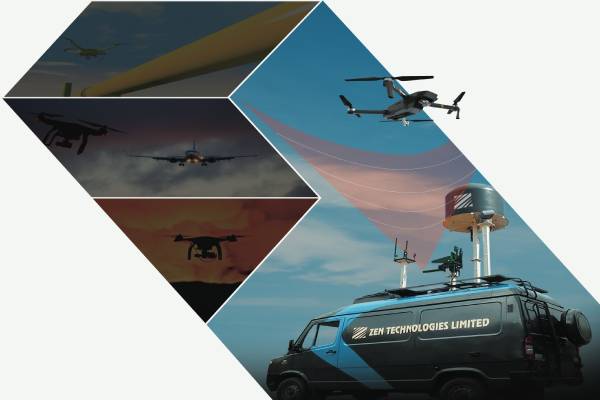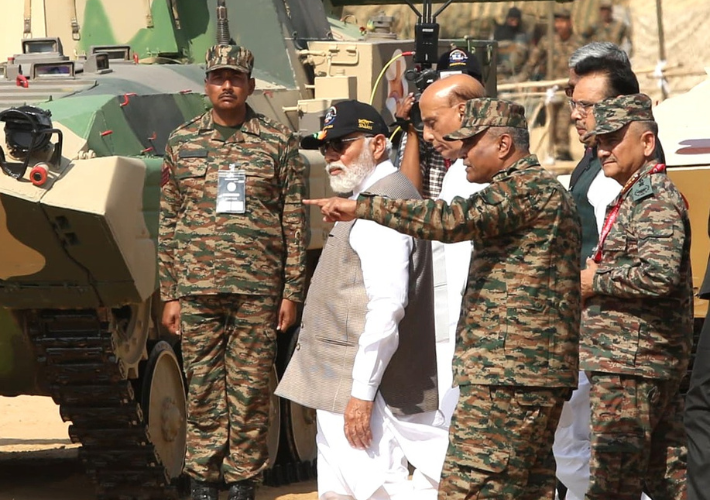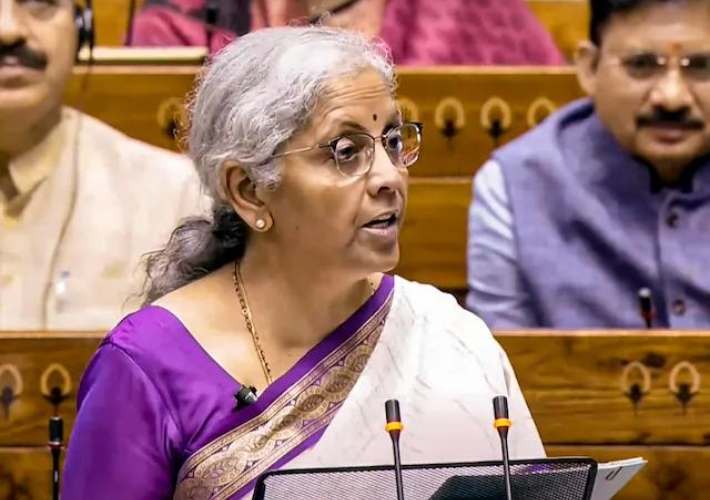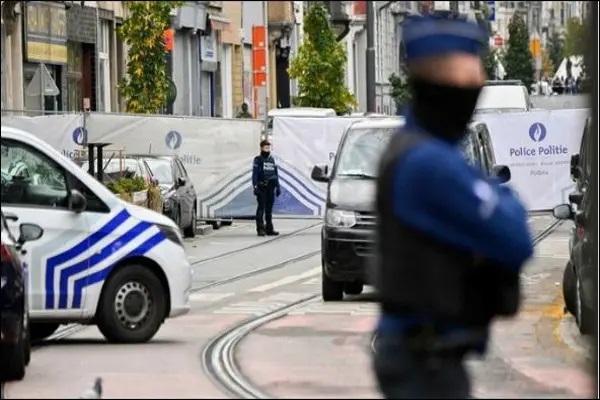The government has clearly pulled out all the stops to ensure that the 18th G20 summit being held 9 to10 September at the Bharat Mandapam in New Delhi summit is a resounding success.
This was evident from the seamless arrangements made for the pre-summit press briefing at the venue on Friday, 8 September. Security was tight, but unexpectedly polite, and everything moved like clockwork, right from the bus service that ferried journalists from the Jawaharlal Nehru Stadium to the venue at Pragati Maidan, and the elaborate arrangements at the massive media center, with food and beverage stations scattered around the 1500 or more computer terminals with high-speed WiFi, and attentive staff efficiently responding to all queries and issues.
There was only enough room to stand for latecomers at the briefing in the auditorium on the first floor, as journalists from around the world vied for a seat or convenient vantage point to hear what India’s Sherpa for the G20 Amitabh Kant, Secretary, Department of Economic Affairs Ajay Seth, Chief Coordinator for the G20 and former Foreign Secretary Harsh Vardhan Shringla, and Foreign Secretary Vinay Kwatra had to say.
India had taken over the presidency of the G20 from Indonesia in November 2022, at a time when the world was reeling from the aftermath of the Covid 19 pandemic and the economic slowdown, growing debt and reversal of sustainable development goals and climate crisis, said Kant in his opening remarks. Under the challenging circumstances, Prime Minister Narendra Modi had chosen the theme of Vasudev Kutumbakam, or The World is One, as the theme for India’s presidency, and emphasised that it should be inclusive, ambitious, decisive and action-oriented. “I can assure you we have lived up to his vision,” said Kant. “No document in the world will have such a strong voice for the developing countries and the Global South as the New Delhi Leaders Declaration which would be released at the end of the summit,” he concluded.
Ajay Seth, in his address, said his department had focused on how to strengthen the multilateral development banks to meet the challenges of the 21st century and support strong, balanced and sustainable growth, manage debt, and use new technology to improve productivity.
By the time India hands over the G-20 presidency to Brazil in November, India would have held at least one, if not more G-20 meetings in every state and union territory in the country. “The effort has been to take the G-20 down to the grassroots level,” said Shringla. “We’ve also used this opportunity to highlight and showcase India’s rich cultural heritage, diversity and tourism potential, and in that context we’ve held over 300 events with the participation of over 18,000 cultural artistes and exponents,” he said, adding: “At least 15 million Indians have been directly involved in some G-20 event or the other across the country.”
He then went on to list various interactive artificial-intelligence based displays put up across the venue, ranging from a democracy wall to music and arts to financial apps which were not yet available to the general public. All these would also be open to the general public after the summit.
“The coming together of the 41 heads of state, government, delegations, and international organisations in India is a celebration of the G-20 family, and it is the largest ever participation of the global south in India,” said Foreign Secretary Kwatra. The two main sessions on Saturday would be themed “One Earth” in the morning and “One Family” in the afternoon, and “One Future’ on the 10th morning, he said.
There would also be a few sideline meetings between Indian leaders and visiting heads of states and organisations over the two days. Apart from this there would a dinner hosted by the President of India, a visit to Rajghat to pay homage to Mahatma Gandhi, and a ‘spouses programme’, he said.
The question-and-answer session that followed dwelt mostly on whether the divisions over the Ukraine crisis and the absence of Presidents Xi Jinping of China and Vladimir Putin of Russia would block or derail a joint statement at the end of the summit.
Kant and the others urged patience, saying the joint document was now being discussed by the leaders, and it would not be right for them to talk about it before they approved and released it. However, Kant hinted that there had been some form of consensus arrived at with every nation “which you will see later.”
If that is indeed the case, New Delhi will have pulled off a major win.
Ramananda Sengupta




